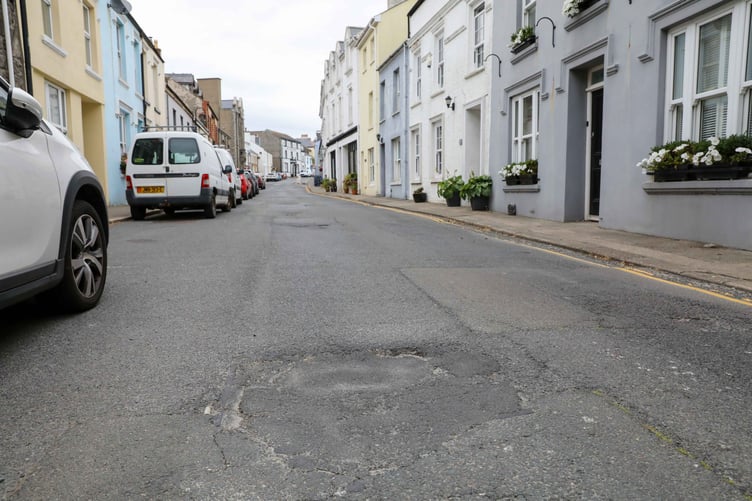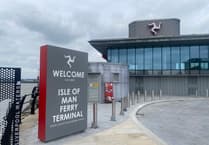A project to reconstruct a village’s crumbling high street will be considered as part of a major change to the way government capital schemes are approved.
A £400,000 scheme to revamp Port St Mary High Street was rejected last year – by the same department that proposed it.
The highway services division of the Department of Infrastructure put together a business case for the reconstruction of High Street in July 2021. But last year Port St Mary Commissioners submitted a Freedom of Information request to find out why the project had not been brought forward.
In its response, the DoI said the business case was not supported by the department and so not submitted to the Treasury for consideration. Commissioners were subsequently informed, however, that it had been given the go-ahead by the department and submitted for Treasury approval.
The Port St Mary High Street scheme has now been listed in the Budget Pink Book for ‘design and feasibility’.
Treasury Minister Dr Alex Allinson announced in the Budget speech last week a ‘fundamental change’ to the way that capital schemes are approved.
He said the new quarterly approval process would improve financial planning and ensure only fully developed schemes are presented to Tynwald for approval.
Schemes that successfully pass through the design and feasibility process will be eligible for approval either in February, June, September or November.
Port St Mary High Street is one of 14 Department of Infrastructure schemes listed in the Pink Book that it says are expected to be presented for consideration within the revised design and feasibility process.
It notes: ‘This will enable the departments to formulate fully scoped and costed business cases that can then be considered for full project budget allocation within the new quarterly approval process.
‘The design and feasibility studies and activities will be financed through bids to the Project Development Fund.’
High Street, now mostly residential but also a through route for traffic and buses from the harbour, is extensively patched, badly potholed and failing in a number of places.
The Department of Infrastructure business case recommended full reconstruction at an estimated cost of £397,084.

.jpeg?width=209&height=140&crop=209:145,smart&quality=75)



Comments
This article has no comments yet. Be the first to leave a comment.